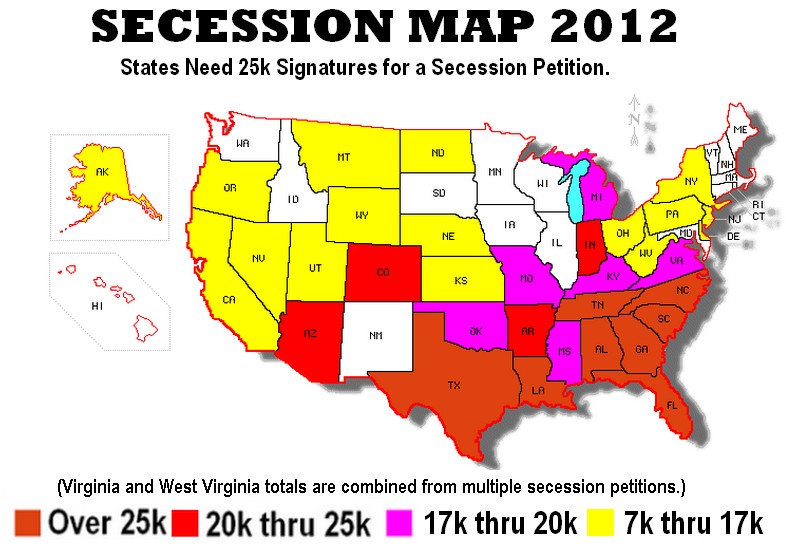
America’s current constitutional system respects the self-determinists’ freedom of expression but sets up insurmountable barriers for any rebel.
In all of America’s 50 states there are a total of 660,000 people who signed an independent petition demanding autonomy. The White House responded by declaring that they support national unity and will not allow independence. This gave us an opportunity to observe American democracy.
America used the slogan of “no taxation without representation” and their ideal of self-determinism to end British rule, and every state willingly became a sovereign entity within the federal government. While the political order created a successful federal principle compromise, along the way it choked off any further self-determining desires. Under America’s current constitutional system, unity can be maintained while protecting the rights of each individual state.
Within America’s Constitution it does not directly deny a state’s right to secession but at the same time the Supreme Court reviews any cases that are deemed unconstitutional while relying heavily upon the federal government for support. In 1869 the ruling of the Texas v. White case stated that in order for any state in the union to become independent it must first receive permission from every state in order for it to become lawful. This illustrates that leaving the union is more difficult than amending the Constitution.
Self-determinism emphasizes autonomy and independence while democracy necessitates conditioning and programming. The people calling for independence obviously are aware that their movement will not produce any substantial results. They are merely using this opportunity to express their long-term dissatisfaction with Obama and his party. Moreover, this type of “tea-party” politics has objectively promoted the development of political interest groups.
The tens of thousands of people calling for independence can be thought of as the representatives of a small and weak subculture; they will never be thought as the prelude to an American revolution. However, this “weak subcultural pluralism,” as Robert A. Dahl termed it, is an important factor in democracy. Not only is it America’s secret weapon to produce and preserve a pluralist, democratic political culture, but it’s also an important experience of many other countries in pursuing a healthy and stable development of politics and culture. The mere existence of this subculture cannot shake the foundations of mainstream culture, but it can help to pare out its rotten core.
Respecting the self-determinists’ legal freedom of expression while using the democratic process and cultural pluralism to stifle the self-determinist desire: this is America’s secret weapon for maintaining the federal government system.

Leave a Reply
You must be logged in to post a comment.